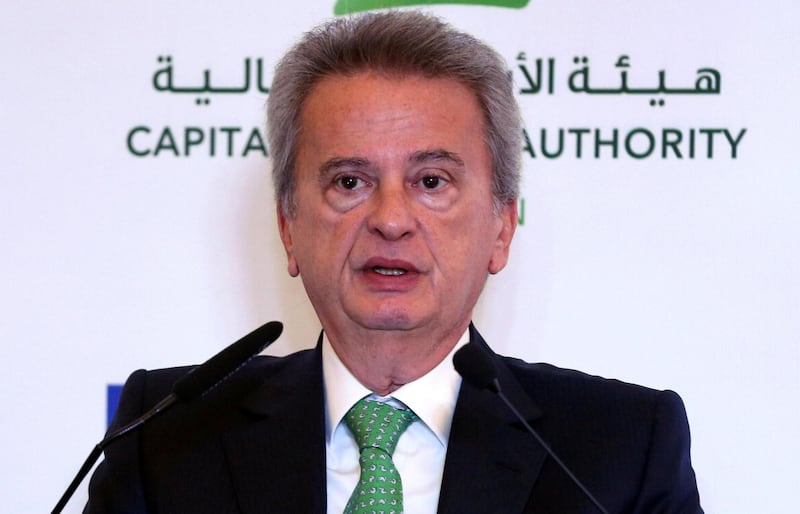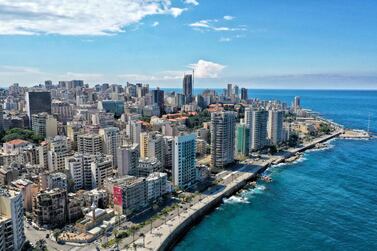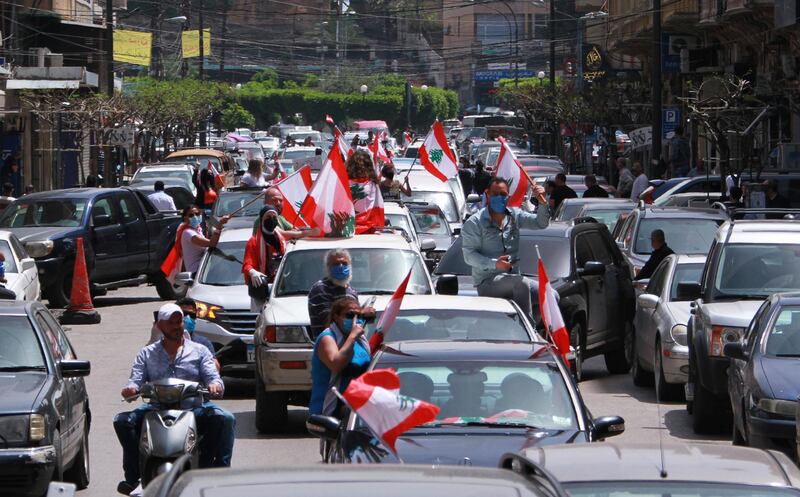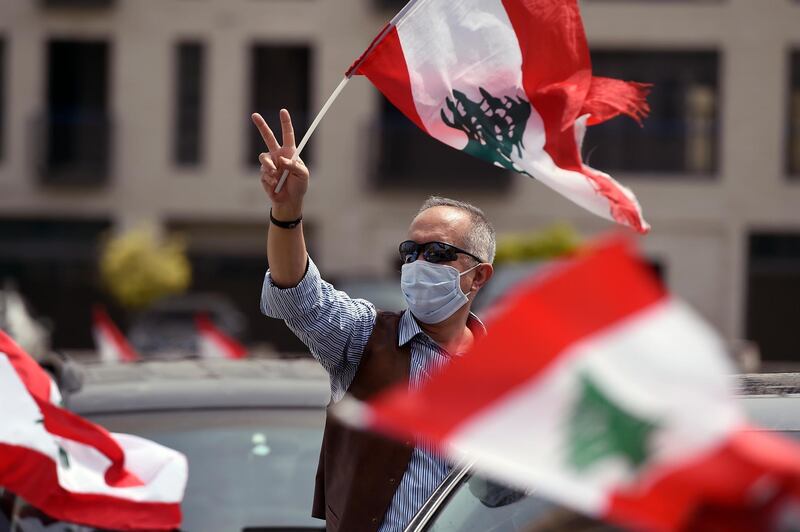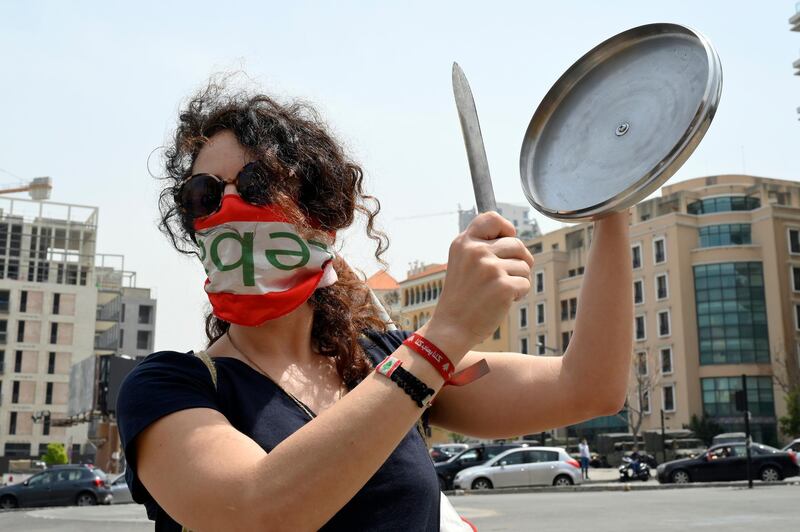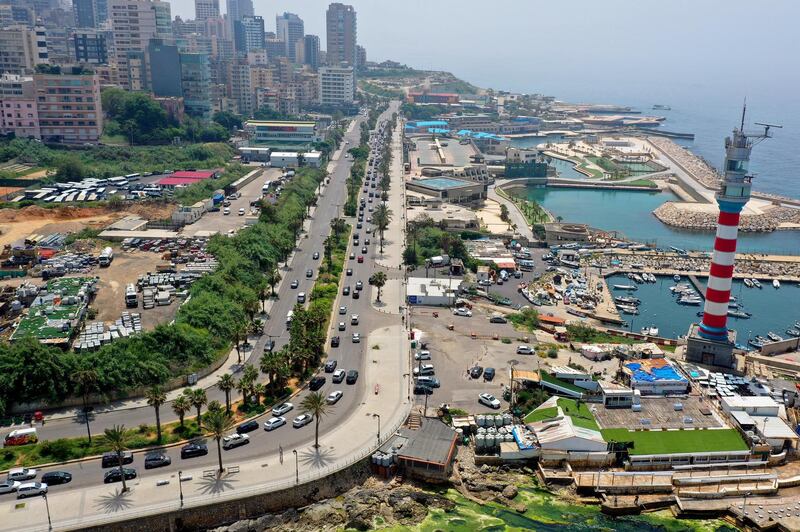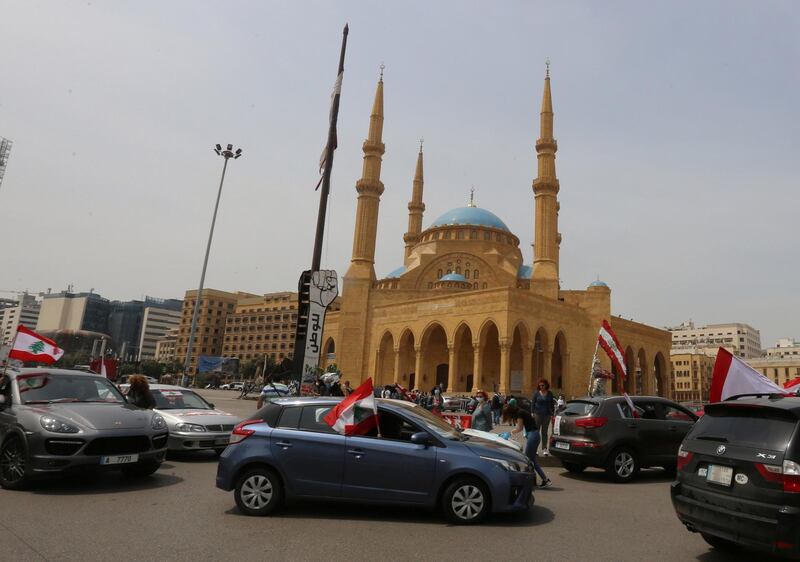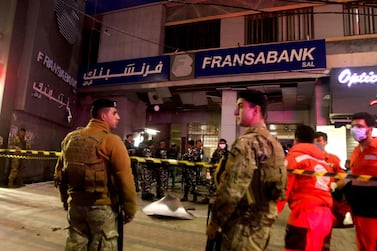When times were good it was rare for anyone to complain about Riad Salameh, Lebanon’s central bank governor of 27 years.
As the country emerged from a 15-year civil war in 1990 and dealt with a series of major events, including the assassination of former Lebanese prime minister Rafik Hariri in 2005, conflict with Israel in 2006, domestic strife in 2008 and the global financial crisis that same year, Mr Salameh was hailed as a hero for maintaining the stability of the economy and the peg of the Lebanese pound to the dollar.
The softly spoken governor was recognised by Euromoney in 2006 as the best central bank governor in the world after being acknowledged the previous year as the top regulator in the Middle East.
The picture is very different today. The country faces its worst economic crisis in three decades and politicians have been slow to act. The country borrowed heavily to finance the cost of reconstruction after the civil war and various governments have pledged to cut spending, increase revenue, privatise state-owned enterprises and reduce the national debt.
But these structural reforms never materialised, largely because Lebanon’s power-sharing system obstructed the passage of meaningful legislation. Instead, the country suffers from daily electricity blackouts and rising unemployment. Lebanon’s debt has ballooned to $92 billion (Dh338bn), placing it among countries with the highest debt-to-GDP ratios globally.
Though the power-sharing system is the glue that has held the country together since the civil war, it is also the Achilles heel that has kept it from moving forward. Marred by long-running political disputes, the central bank stepped in to fill the void, taking on policies that are customarily left to a finance ministry, such as subsidised loans.
“Within this empty space, the central bank of Lebanon was doing what the government was supposed to be doing, providing subsidies to everybody,” said a prominent financier, who spoke on condition of anonymity. “The central bank started dipping into the deposits available to cover the deficits in the government budgets.”
Policymakers also assumed that as long the economy grew at a faster pace than the public debt, the situation would be manageable.
The withdrawal of Syria from Lebanon in 2005, following Hariri’s killing, coupled with high interest rates on deposits attracted billions of dollars - which increased further after interest rates abroad plummeted to zero during the 2008 global financial crisis - making Lebanese banks more attractive.
Fast forward to 2011 when the conflict in neighbouring Syria unravelled, leading to the influx of more than a million refugees, which magnified the structural imbalances in Lebanon’s economy, that have only got worse in the intervening years.
Deposit flows have dried up, credit is frozen, the pound has lost more than half of its value and the economy is set to contract 12 per cent this year, according to the International Monetary Fund.
Mr Salameh, who turns 70 this July, and was reappointed by the government for a fifth time in 2017 for another six-year term, has been blamed by many, at times undeservedly, for the economy’s fragile state.
As the regulator, Mr Salameh bears some of the blame for the central bank overstepping its mandate, according to Dan Azzi, a critic and former chief executive of Standard Chartered bank in Lebanon, but there is, he said, “enough blame to go around.”
“One must not forget the mitigating factors — that a large portion of the depleted deposits was used to subsidise the exchange rate,” he said.
“The central bank relied on banks to continue to entice a fresh flow of funds by new depositors to pay old ones,” Mr Azzi added.
“Thus, bank CEOs and their boards have a huge part of the blame, because they invested in an institution that they knew, or should have known, cannot possibly pay them back, unless it was bailed out by the government.”
For distraught citizens, Mr Salameh and the banking industry are viewed as an extension of a political system marred by corruption, greed and nepotism.
To some Mr Salameh, a 20-year veteran of Merrill Lynch, and former private banker to the late Mr Hariri, is a casualty of Lebanon’s fractious political landscape. Fringe elements of the far left, who want to nationalise banks, and supporters of Hezbollah who control the state today, see him as an easy target.
On Friday, Lebanon’s Hezbollah-backed prime minister Hassan Diab launched a scathing attack on the governor, prompting some to speculate Mr Salameh might get fired.
The chances of that happening, however are slim. Lebanon’s laws stipulate a governor can only be removed from office if medically incapacitated or is proven to have committed illegal acts.
On Sunday, Maronite Patriarch Bechara Boutros Al-Rai, Lebanon’s top Christian religious authority, rejected criticism of Salameh. “We ask: who benefits from the destabilisation of the central bank governorship? The beneficiary himself knows,” said Rai, as reported by Reuters. “We know the dire outcome, which is eliminating the confidence of the Lebanese people and [foreign] states in the constitutional foundations of the state.”
According to Lebanon's power sharing arrangement the governor of the central bank is a Maronite Christian and four vice governors are a Shiite, a Sunni, a Druze and an Armenian.
Mr Salameh has traditionally remained above the fray and has never expressed any political ambitions.
“The entire banking system has been the target of a systematic campaign since last November to shift the blame of the financial crisis away from entrenched political parties and vested interests,” said Nassib Ghobril, chief economist at Byblos Bank.
“So, it is not surprising to see governor Salameh under attack. This campaign escalated three weeks ago when the government issued its financial plan that effectively forces the banking sector to pay the entire cost of the crisis. We are in a double crisis of confidence and of liquidity. It is not clear how defaming governor Salameh will help solve these crises.”
As the clock ticks, Lebanon may be running out of options.
“Today we need help that should come from beyond Lebanon,” said the Lebanese financier, adding “all roads lead to Washington DC. To the IMF.
